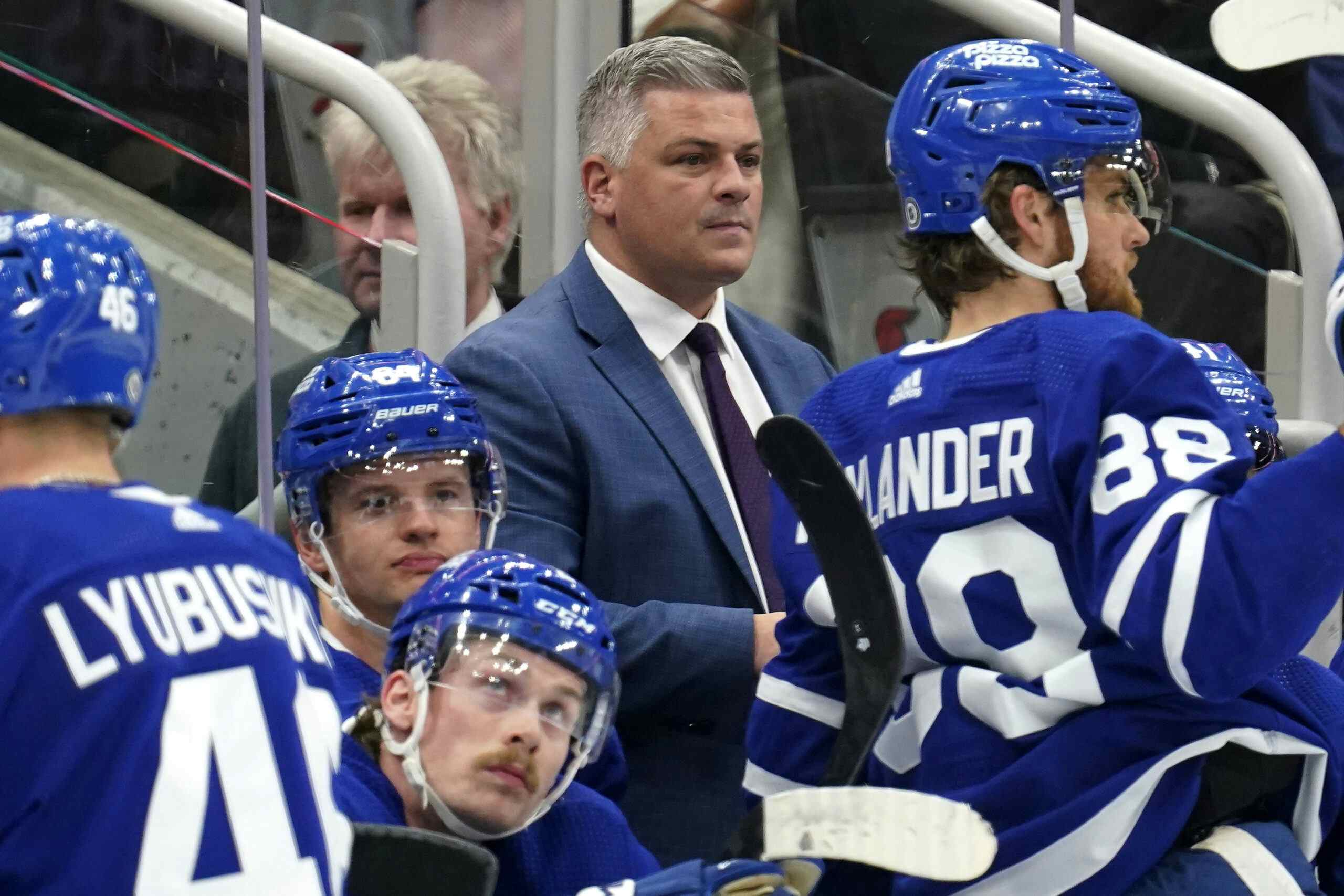Toronto: a tale of two teams
By Cam Lewis
9 years agoIt’s been a tale of two teams in Toronto this season. On one hand, you have the Leafs who seemed to be legitimate playoff contenders in mid-December, but on the other, you have the team who has fallen off a cliff by the All-Star break. The Leafs have lost their last six games and fans appear to be draft watching at this point, a far cry from where they were just two months ago when they were in the midst of a six game winning streak.
When things were riding high for the Leafs, they had a stretch between Nov. 20 and Dec. 16 where they went 10-1-1, improving their record from 9-8-2 to 19-9-3. Since Dec. 18, which was the end of their six game winning streak, the Leafs have gone 3-14-0. Over that time, their record has fallen from a very respectable 19-9-3 all the way to 22-23-3.
So which of these two versions of the Toronto Maple Leafs is legitimate? Are they as good as they seemed to be back in early December when times were good, or are they as bad as they are right now in the thick of their longest losing streak of the season? Let’s break down each streak and see.
As I mentioned earlier, the Leafs are 22-23-3 at the All-Star break, good for sixth in the Atlantic Division, ten points out of a playoff position. They rank in the bottom of the third in most offensive team statistics, except for goals for per 60 minutes, where they rank 13th with 2.33. They’re 29th (ahead of only Buffalo) in Corsi against per 60 minutes with 62.2 and 25th in Corsi for per 60 minutes with 52.0, meaning they’re being heavily out chanced game in game out. This is compounded by the fact they’re 28th in shots against per 60 minutes with 32.8, while they’re 21st with 27.9 shots for per 60 minutes.
Note: all info is at 5 on 5
62.2 Corsi against per 60 minutes (29th in the NHL)
52.0 Corsi for per 60 minutes (25th in the NHL)
32.8 Shots against per 60 minutes (28th in the NHL)
27.9 Shots for per 60 minutes (22nd in the NHL)
2.70 Goals against per 60 minutes (27th in the NHL)
2.33 Goals for per 60 minutes (13th in the NHL)
91.81 Save percentage (21st in the NHL)
8.3 Shooting percentage (10th in the NHL)
5-2 win over Vancouver: 27 shots for, 44 shots against, 47.0 Corsi for/60, 91.0 Corsi against/60, -22 Scoring chances +/-
4-1 win over Calgary: 27 shots for, 33 shots against, 51.0 Corsi for/60, 77.0 Corsi against/60, -20 Scoring Chances +/-
2-1 win over Detroit: 19 shots for, 42 shots against, 30.5 Corsi for/60, 68.3 Corsi against/60, -28 Scoring Chances +/-
4-1 win over Detroit: 40 shots for, 28 shots against, 72.0 Corsi for/60, 58.0 Corsi against/60, +7 Scoring Chances +/-
4-3 win over Los Angeles: 31 shots for, 36 shots against, 73.8 Corsi for/60, 126.5 Corsi against/60, -10 Scoring Chances +/-
6-2 win over Anaheim: 27 shots for, 42 shots against, 59.0 Corsi against/60, 148.0 Corsi against/60, -15 Scoring Chances +/-
This doesn’t really look like the stats that would come with a winning streak. The Leafs were outshot, out-chanced, and seemingly outplayed in each of the games except for one. Over the six game stretch, they were outshot 171 to 225, which averages out to nine shots per game. The more damming stat is the scoring chance +/-. When you’re outshot, you can somewhat make the argument the chances you allowed may have been a high volume, but a low quality. This clearly isn’t the case as their opponents dominated them in scoring chances in addition to shots. It’s pretty clear the Leafs were carried by strong goaltending in these games, as their goalies put up a combined save percentage of 0.955. To go along with goaltending, they also put up a 14.6 per cent shooting percentage in this six game stretch, which is much better than the 8.3 per cent they’ve put up over the course of the entire season.
2-0 loss to Los Angeles: 19 shots for, 19 shots against, 47.3 Corsi for/60, 55.0 Corsi against/60, -6 Scoring Chances +/-
4-0 loss to Anaheim: 28 shots for, 24 shots against, 44.0 Corsi for/60, 44.0 Corsi against/60, +4 Scoring Chances +/-
3-1 loss to San Jose: 25 shots for, 41 shots against, 59.7 Corsi for/60, 74.3 Corsi against/60, -6 Scoring Chances +/-
3-0 loss to St. Louis: 27 shots for, 33 shots against, 63.5 Corsi for/60, 64.7 Corsi against/60, -13 Scoring Chances +/-
4-1 loss to Carolina: 35 shots for, 31 shots against, 58.5 Corsi for/60, 47.6 Corsi against/60, +4 Scoring Chances +/-
4-3 loss to Ottawa: 40 shots for, 26 shots against, 62.4 Corsi for/60, 51.4 Corsi against/60, +3 Scoring Chances +/-
This wasn’t what I expected. Over the course of their winning streak, they were heavily outshot and out-chanced, so I imagined their losing streak would have been similar stats to that of their winning streak, minus the strong goaltending. Interestingly enough, the Leafs appear to have played much better hockey throughout their losing streak than they did during their winning streak.
Of course, these stats are totally up to interpretation, which is what makes them interesting. From an outside perspective like my own, it seems the Leafs are a team who completely live and die with the performance of their goaltender. Digging into that a little more, they’ve only won one game this season when allowing four or more goals, which was a 5-4 win over the Rangers back in November. In games where their goaltender allows two or less goals, they have only three losses, with one coming in overtime. Of their 22 wins this season, just six come when their goaltenders allow at least three goals, giving them a record of 6-21-2 in games of the sort.
It’s difficult to say which team is a more accurate representation of the Leafs, the losers or the winners because the stats from their losing streak are better than the stats from their winning streak, but the stats from their losing streak come closer to matching their season stats. My opinion is that the team relies very heavily on the performance of their goaltender to win them games. As a result, the team will tend to play terrible games, but still win, but then go on stretches where they play fairly well, but don’t get results.
Of course, each winning streak is a small sample size, and the stats produced over the course of the season are much better indicators of what the team is all about.
Thanks to Hockey Reference and War on Ice for excellent stat databases.
Recent articles from Cam Lewis





